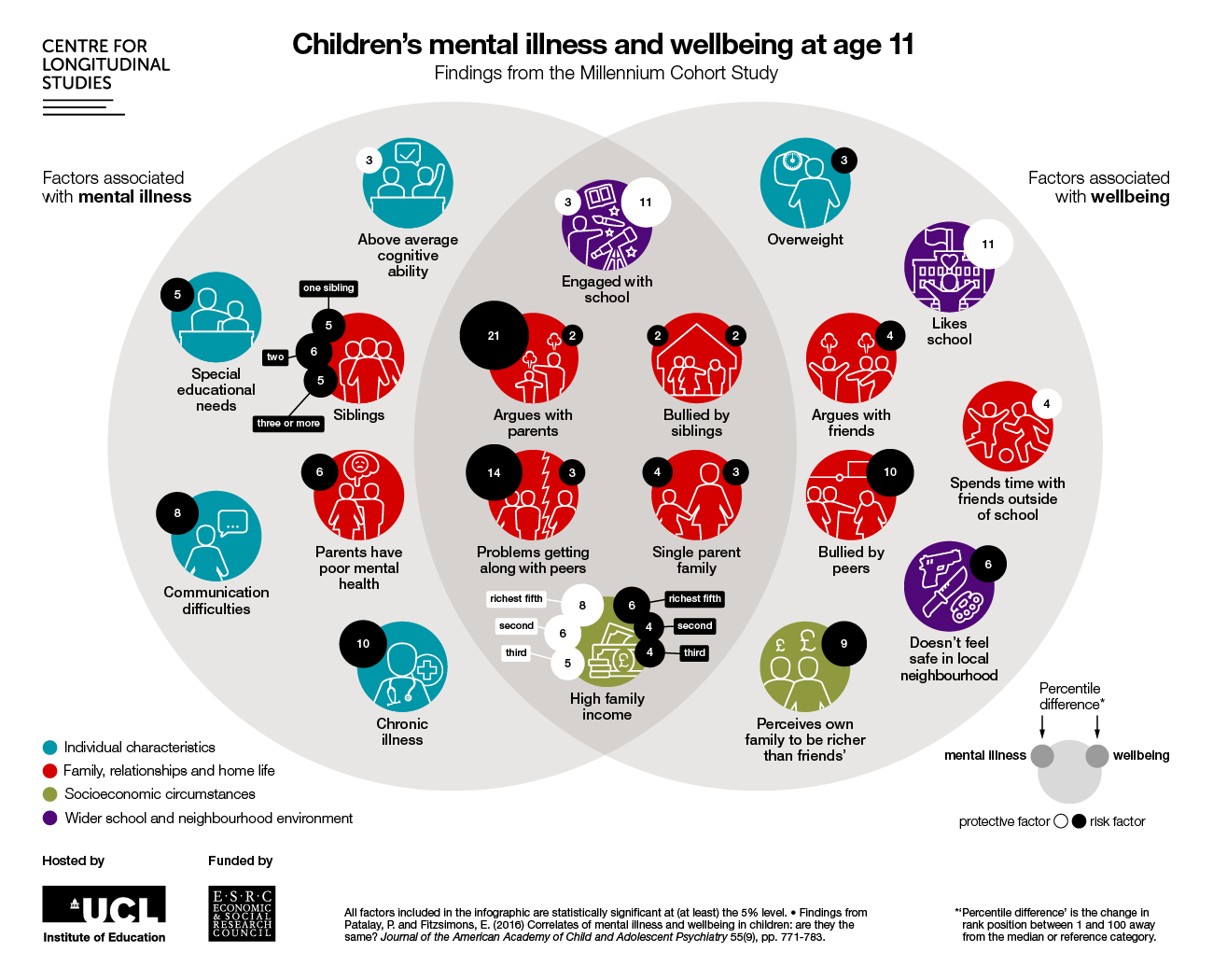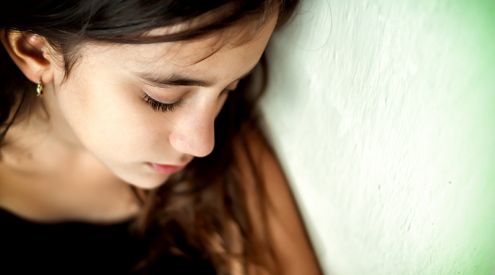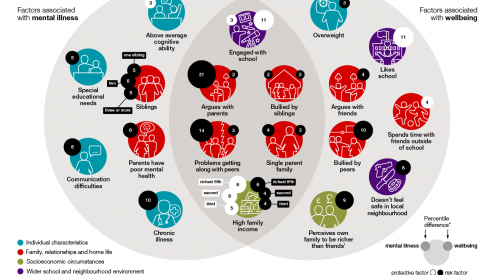CLS academics, Emla Fitzsimons and Praveetha Patalay, wrote accessible briefing papers which were shared with government departments. The extensive media coverage about the research drew huge interest from policymakers, practitioners, parents, and educators. The research rapidly became part of the bloodstream of public discussion of young people’s mental health.
The researchers hosted an ESRC Festival of Social Science event, attended by policymakers and third sector, participated in the Public Health England Special Interest Group on young people’s mental health, and presented at a Conservative Party roundtable on youth mental health, and at the Public Health England (PHE) annual conference.
To help communicate the distinction between mental health and wellbeing, the researchers translated complex statistical analysis into an infographic showing risk and protective factors at age 11. This was used in several contexts and by practitioners in public health, including PHE, the Department for Education and many local government and child mental health training programmes.

Click here to download the infographic as a larger version
Concrete policy impacts include decisions to increase children and young people’s (CYP) mental health services capacity and changes to PHE strategies for tackling CYP mental health. For example, due to this work, PHE has expanded its focus from one that had previously been on mental health, to also include mental wellbeing. It also adapted the framework it uses to identify how to best support young people, by extending the range of multi-level and multi-setting risk and protective factors associated with mental health and wellbeing.
This work has also framed discussion among policymakers at the Department for Education.











